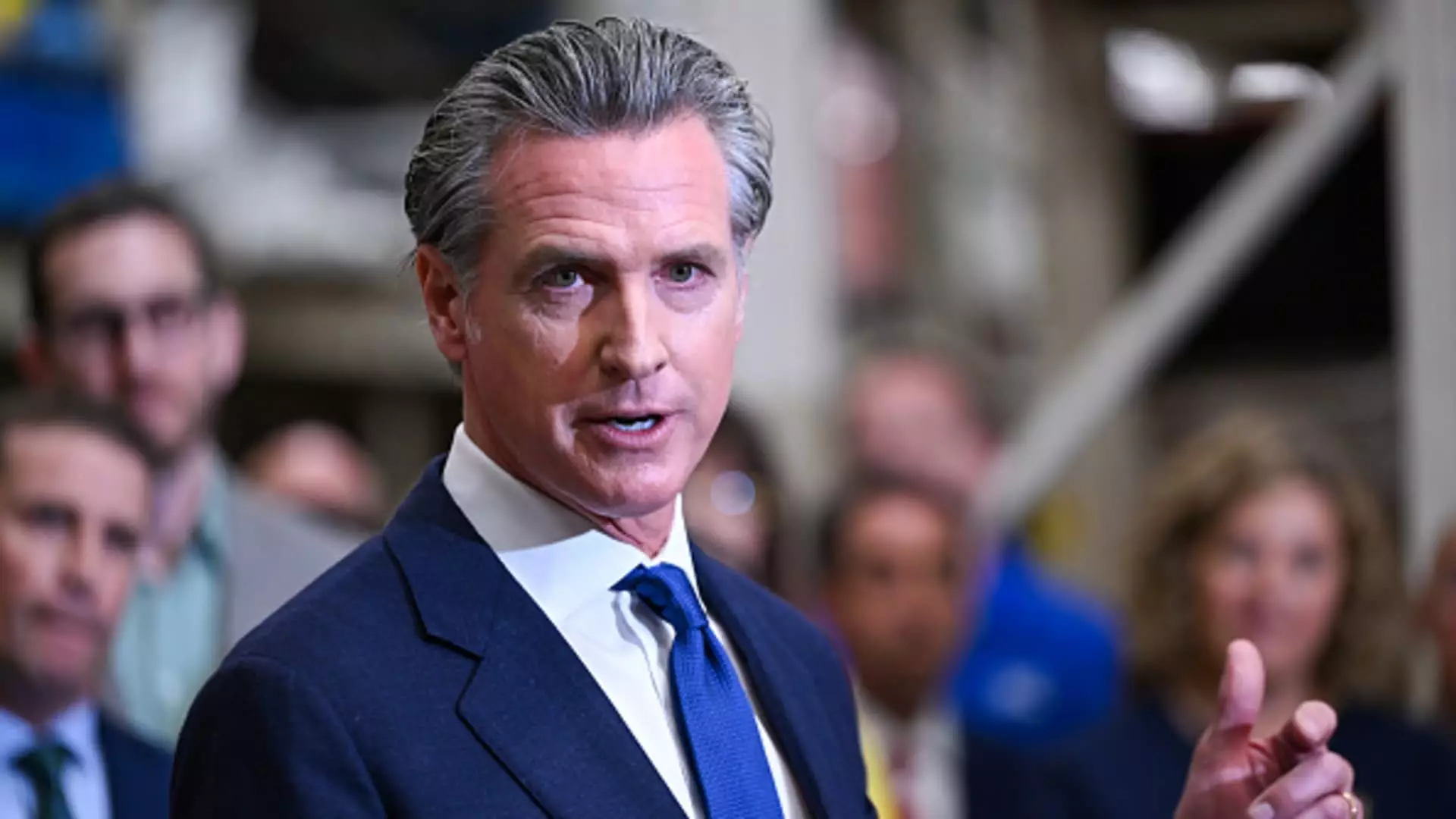As the new political landscape emerges with the anticipated inauguration of President Trump, California Governor Gavin Newsom is taking proactive measures to shield the state from potential federal overreach. Starting Monday, a special legislative session has been convened in response to concerns over Trump’s proposed policies, which many in California perceive as detrimental to their progressive values. The objective of this session is to establish a robust litigation fund totalling $25 million, designed to bolster California’s legal defenses against anticipated policy shifts that could harm its residents.
This effort marks a significant step in California’s political strategy, especially as it is the most populous state in the nation. The governor’s office has indicated that the funds would primarily support initiatives within the California Department of Justice and extend to various state agencies. These resources are intended for judicial challenges, primarily focusing on reproductive rights and environmental protection—two critical areas that have become focal points of contention in the face of a conservative federal agenda.
Following Trump’s election victory, Newsom articulated his concerns about California’s unique position and the need for the state to fortify itself against potential federal impositions. “We need to assert ourselves and prepare to firmly plant our feet,” Newsom asserted, reflecting a call to consciousness among Californian lawmakers. With the threat of losing progressive gains, the urgency of this legislative session cannot be understated; it seems vital for California to mobilize quickly, seeking legal avenues to protect the rights of its diverse populace.
The upcoming series of hearings aim for the establishment of concrete laws before the inauguration on January 20. This swift action underscores the reality of Trump’s potential influence on governance, particularly when juxtaposed with California’s progressive agenda. As Newsom prepares to navigate through the complexities of this anticipated federal transition, he is met with skepticism from Trump’s transition team. Karoline Leavitt, a spokesperson for Trump, has dismissed these efforts as futile, emphasizing that despite California’s entrenched Democratic values, many citizens supported Trump, implying a disconnect between state leadership and various constituents’ desires.
California’s legal battle against Trump’s initial term provides a framework for understanding the potential challenges that lie ahead. Between 2017 and 2021, the California Department of Justice launched an impressive 122 lawsuits against the Trump administration, a reflection of the fraught relationship between state and federal powers. With an investment of $42 million in legal battles, the state secured numerous legal victories that not only reimbursed costs from the federal government but protected billions in federal funding earmarked for various state programs.
This historical context amplifies the urgency of the upcoming special session, as Newsom has committed to maintaining California’s distinct policy landscape even amid fiscal pressures from a newly elected Republican president. Notably, the governor’s commitment to reviving the Zero Emission Vehicle rebate program illustrates the state’s insistence on fostering an eco-friendly economy, despite possible federal withdrawal from similar initiatives. Discontent among California’s largest electric vehicle manufacturer, Tesla, underscores the internal tensions that can arise within the industry, particularly with the influence of federal policies.
This legislative session comes at a time of unprecedented political shifts within California itself. Recent elections have seen a tide of conservative successes in key positions, with moderate district attorneys elected in major counties such as Los Angeles. Additionally, significant electoral changes like successful recalls and new mayoral wins signal a potential realignment in California’s political landscape, one that complicates Newsom’s efforts to unify the state’s progressive base against federal threats.
A recent proposition that increased penalties for specific crimes indicates a growing concern for crime and safety that transcends strictly social issues, revealing a shifting electorate that prioritizes economic stability. This sentiment reinforces the notion that Newsom and his team must walk a delicate line; while defending progressive ideals, they must also respond to rising calls for accountability among crime and quality of life—a tension that reflects broader national discussions.
As Governor Gavin Newsom initiates this crucial legislative session, California stands at a crossroads between asserting its progressive policies and responding to turbulent national currents. Balancing these competing pressures will be imperative as the state prepares to face a potentially combative federal administration. With a significant litigation fund at stake and a backdrop of shifting political dynamics, California’s future will likely hinge on its ability to galvanize legal and legislative strategies that resonate with the core values of its diverse populace. The coming weeks will not only test Newsom’s leadership but could also redefine California’s relationship with federal governance in an increasingly polarized political climate.


Leave a Reply